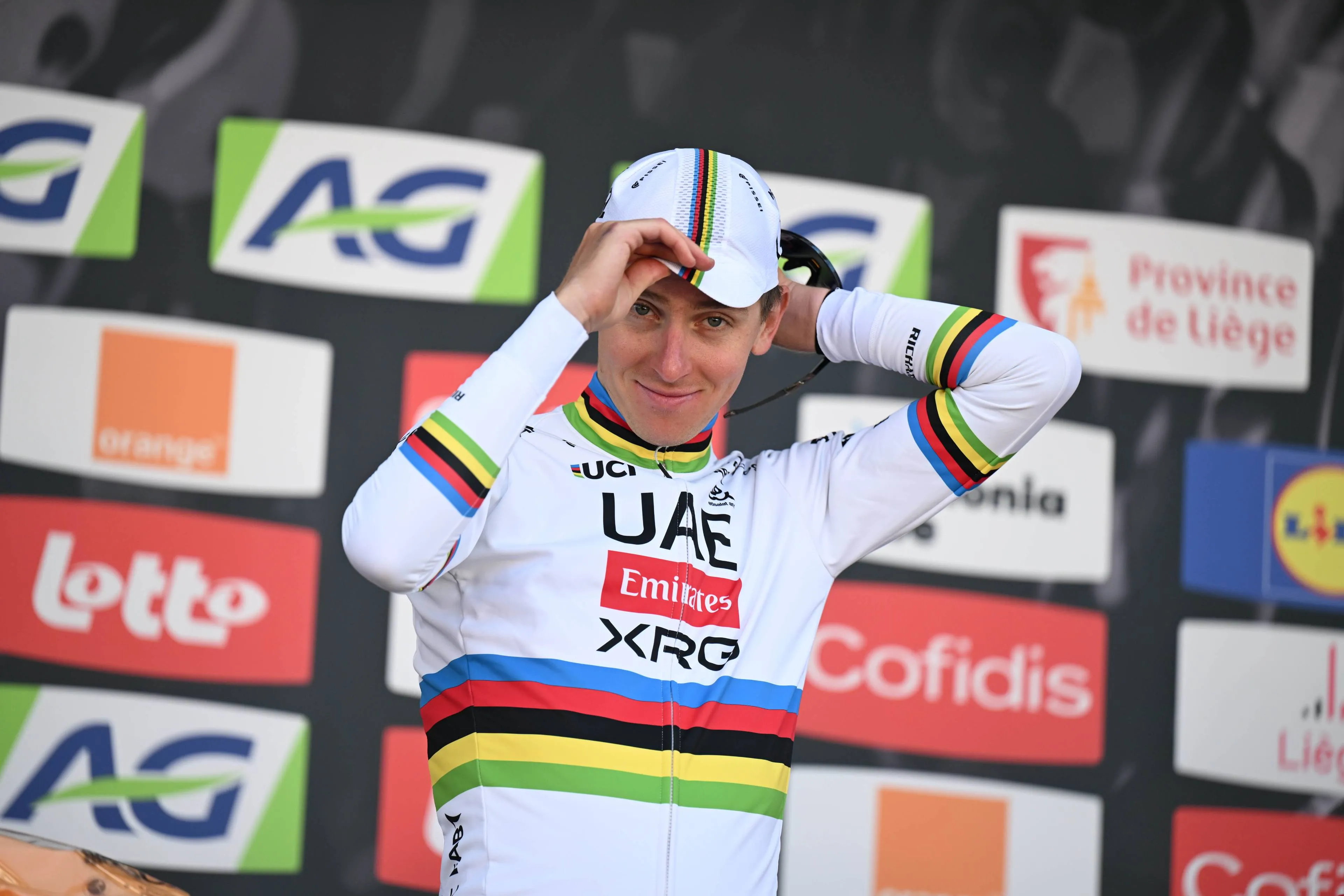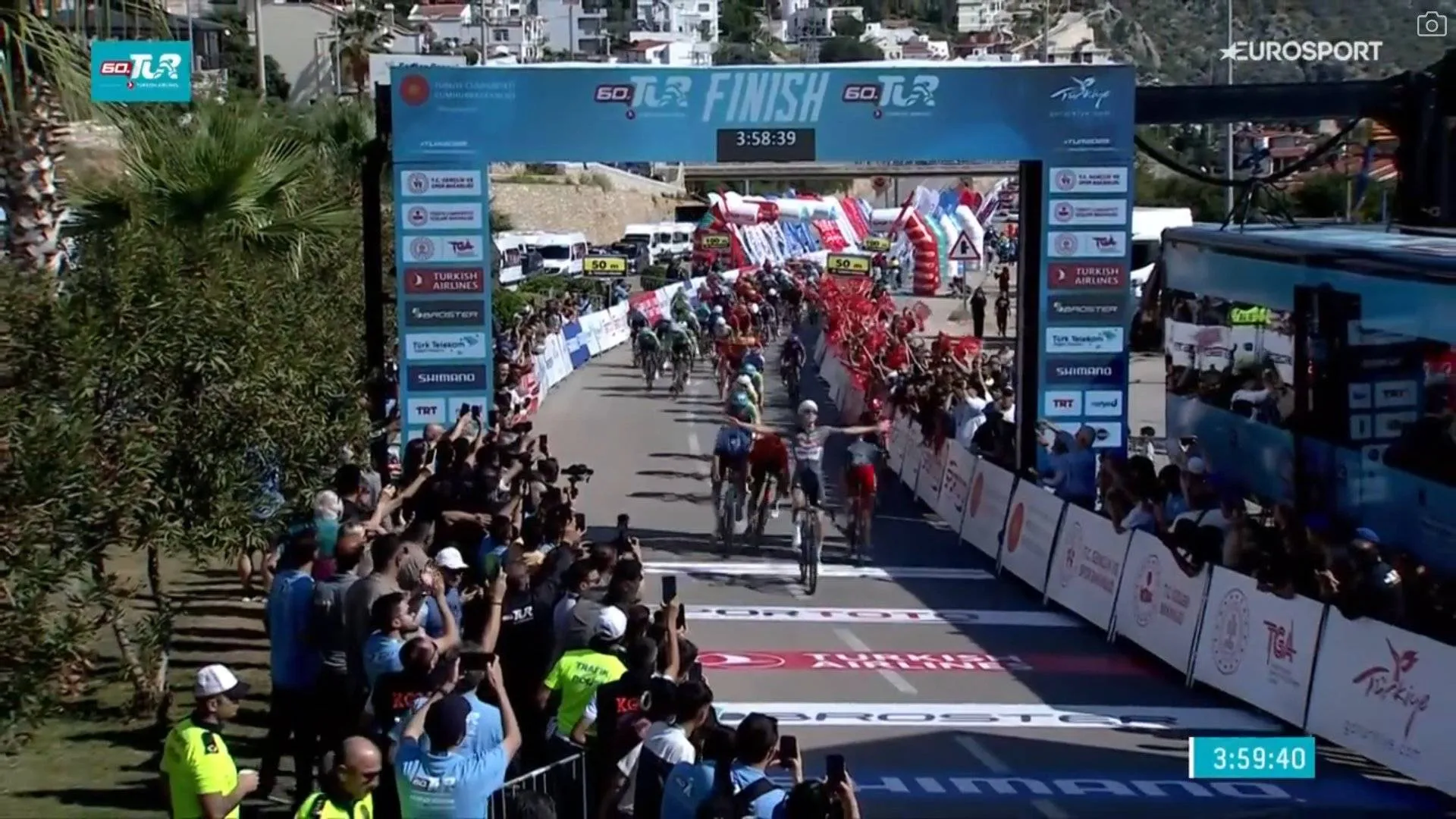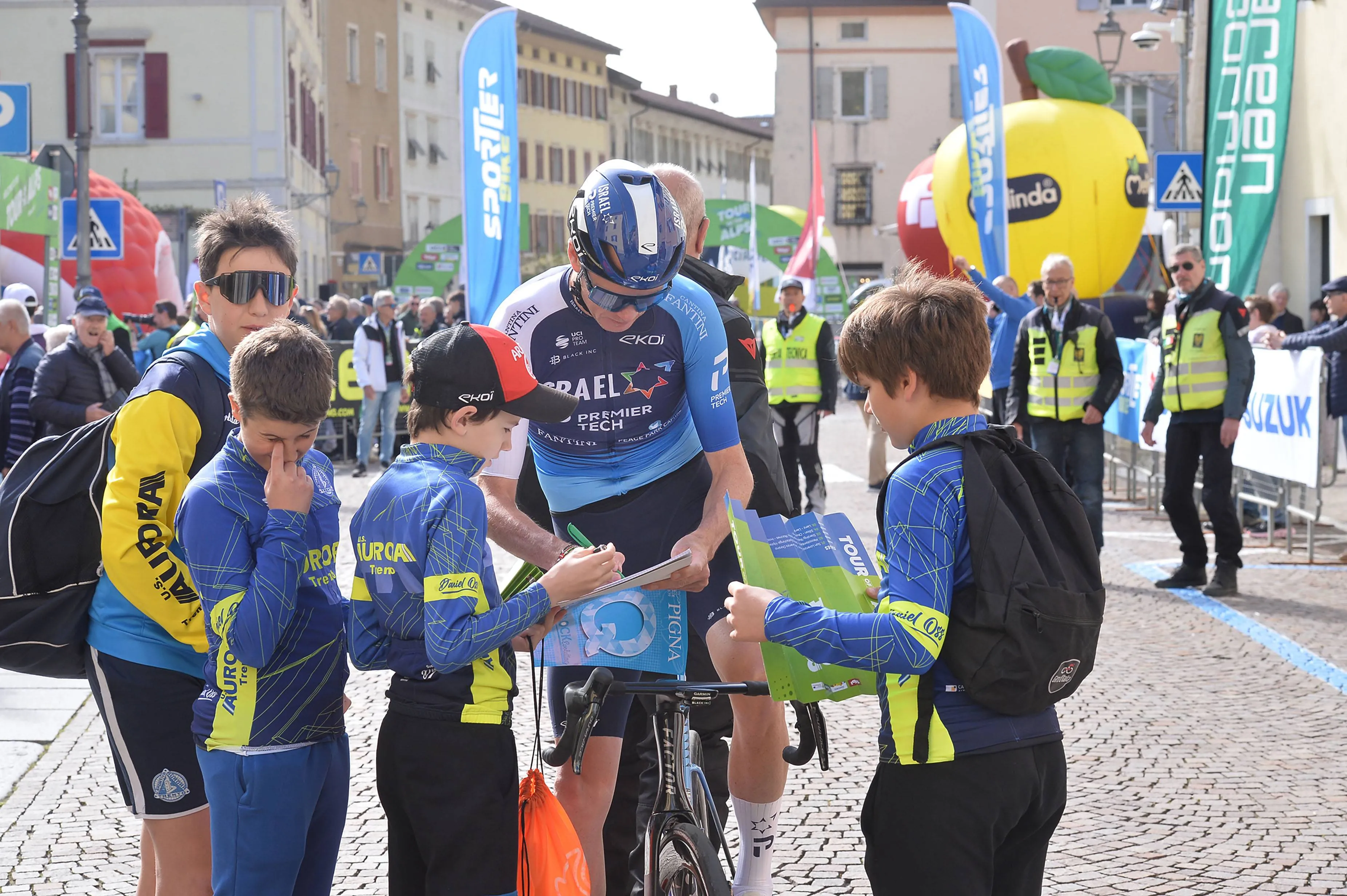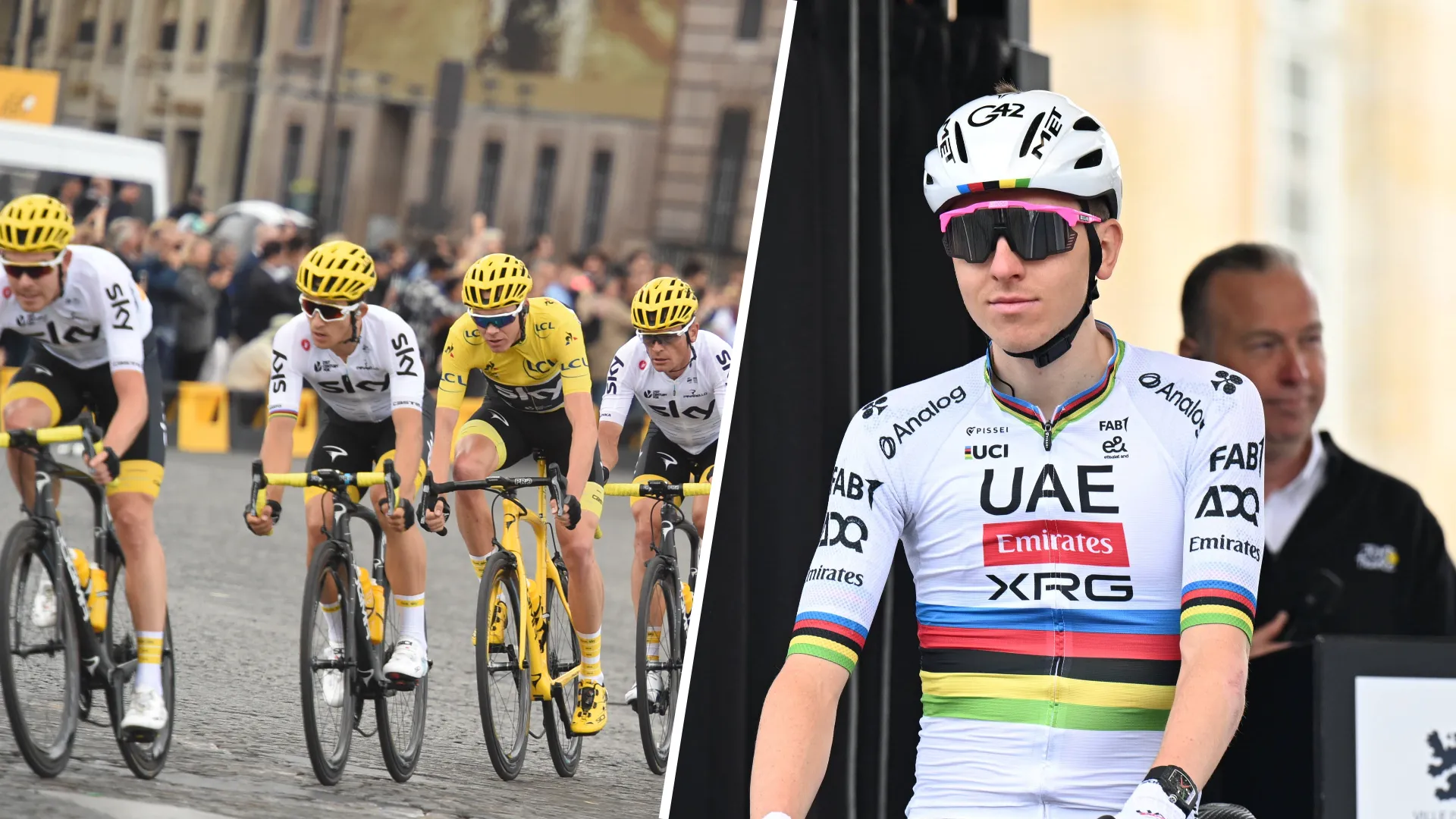Thijs Zonneveld on 'mentally broken' van der Poel at the end of the Tour of Flanders: "You can see him collapsing. He gets exhausted"
CyclingMonday, 07 April 2025 at 17:00
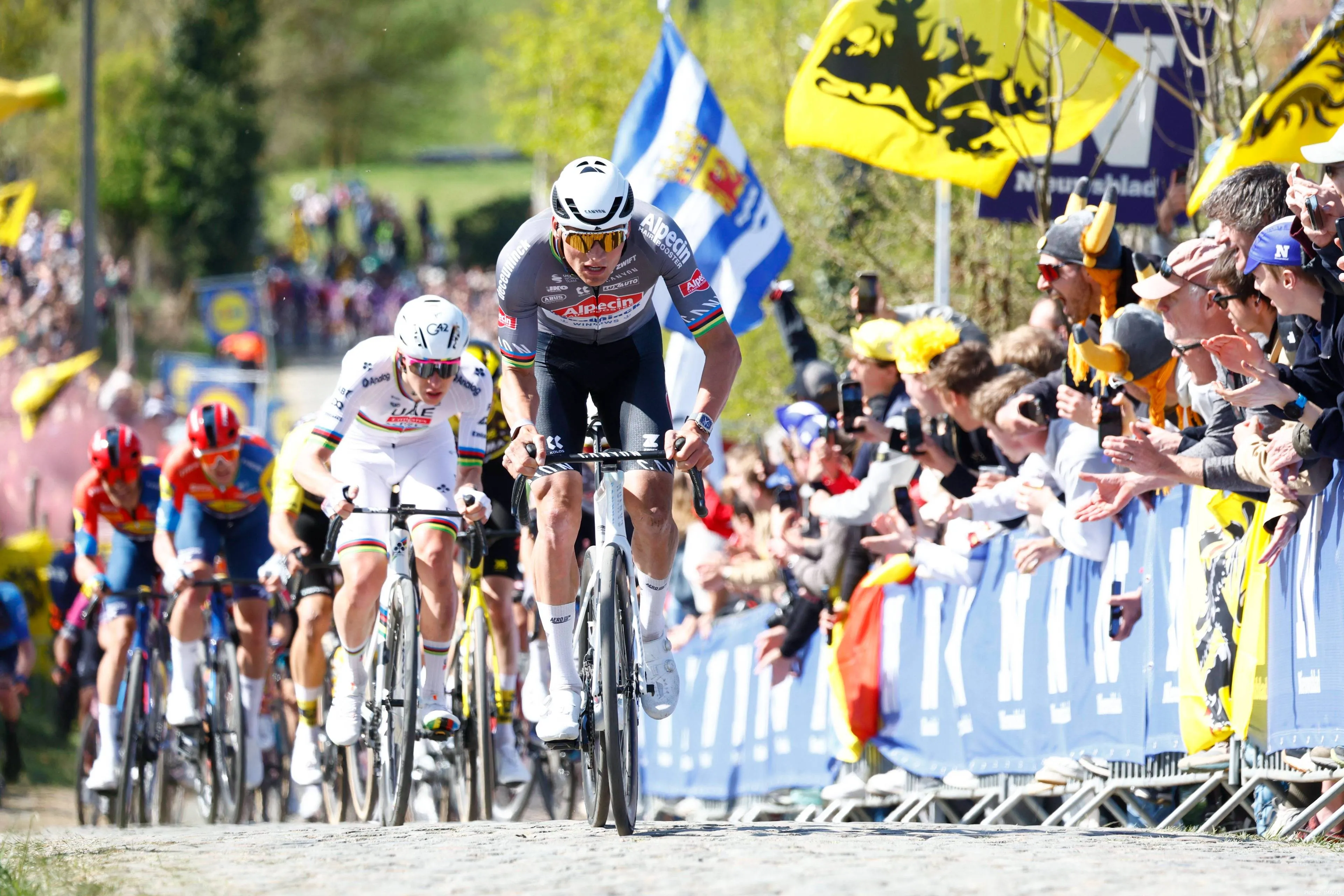
Thijs Zonneveld is one of the most vocal and popular voices in the Netherlands when it comes to cycling commentary, but his outlook on Mathieu van der Poel's Tour of Flanders wasn't the best. He believes the defending champion blew up trying to follow Tadej Pogacar, whilst with a different tactic he may have hung on in the end.
"Van der Poel quickly caught up there; he got back on the wheel with an impressive display of power. But that took a toll on him," Zonneveld argued in the In de Waaier podcast regarding the second Oude Kwaremont ascent. "Either he should have moved along with Pogacar, or he should have positioned himself better".
On the Oude Kruisberg, where the duo dropped Mads Pedersen: "There too, you think: he has excess energy. Afterward, he says: I never had excess energy and was always at my limit. From his perspective, I can understand that because he is used to better legs. He is even more used to having a surplus. Perhaps by closing the gaps so quickly, he wanted to say: I am very good. But in retrospect, it exhausted him. I think he handled that sloppily."
Read also
The Dutchman then cracked the final time up the Oude Kwaremont, quite spectacularly in fact, as he was then caught by the Wout van Aert group and hung on to survive the remaining climbs. "It is quite possible that van der Poel does not fully sense what is going on. I feel that van Aert has a better feel for it and can pace himself better because he often finds himself being dropped. It doesn't happen to van der Poel that often," he argues.
"Every time he gives the impression that he is great: he controls everything, he is powerful, explosive, aggressive. But then they turn onto the Oude Kwaremont, and Van der Poel is perfectly on his wheel. But then it's just very simple. Even before the cobblestones, you can see him collapsing," Zonneveld believes. Whether this was bound to happen or not, it was clear that Pogacar's pace was too much for all of his rivals. "He gets exhausted. His head goes down, his elbows out, and then you see the gap widening."
Read also
From there on it seemed like no-one in the chasing group believed it was possible to reach victory, and they were all past the limit and thinking of second place then. "You're up against four, with a headwind to the finish: you don't have any chance. But it never looked like it was going to happen (he refers to the chance of catching Pogacar, ed.). What van der Poel did in the last kilometers was worthless. What he did was almost disturbing. He is also mentally broken; he puts everything into following Pogacar. He fought the duel, and he rode to win. The others rode for a chance to win."
On Pogacar, Zonneveld can also continue to praise a rider that defies most odds and continues to make history when it comes to the riders in the modern peloton. "You would almost forget that this is the winner of the Tour de France, the winner of Liège, who has now won for the second time—the world champion. I have said it before, but he is the best rider ever. And he may be eleven Monument races behind Eddy Merckx, but that was a different era. And he is still so young. While others increasingly focus on specific races, he only expands his range. If this does not significantly impact his tour campaign, he will continue to do so in the coming years."
Read also
Your Ronde podium. 👏🏼
— Lukáš Ronald Lukács (@lucasaganronald) April 6, 2025
1. Tadej Pogačar
2. Mads Pedersen
3. Mathieu van der Poel
📷: #RVV25 pic.twitter.com/87HXFrfJgv
claps 2visitors 2
2 Comments
Exactly, that easily makes for a minute at the front. You don’t see Pog cracking often either (less often than MVDP even) but when he does it’s lights out and over too. This is completely normal and to be expected, at the level of competitiveness all these guys are they only crack once they’ve pushed beyond their manageable limit and there’s no coming back from that. When your rival forces you into the red to keep or catch up, it’s over, in that respect, well done to WVA who seems to be world champion in staying just outside the red for as long as he can.
Just in
Popular news
Latest comments
- I would tend to agree with Contador, but Tadej is different. I wonder the opposite for Jonas, but he's different as well. The Tour is a race between these two unless there is a crash.awp28-04-2025
- The space height level of Tp has to reduce at some point, cupla yrs back he some done some classics and suffered in the tour...
 leedorney28-04-2025
leedorney28-04-2025 - Some of these ex pro talk stupidly. Pogi has power numbers that no matter how many teammates you have one cannot match. San Remo and Roubaix, WC2024, Strade is the classic case. Nobody even with teamamtes was able the chase him. On top of that his teammates are also the strongest. They usually drop the support of other leaders.abstractengineer28-04-2025
- Healy and Ciccone are the best of the rest they deserve it in the podium. LTK are the strongest teams with Pogi's UAD.
 James2631828-04-2025
James2631828-04-2025 - i wonder if Eddy's teams ever worried like this?Crashjames28-04-2025
- He just rode away...either he TP has incredible ability OR the rest where knackered/not good enough... Tadej made that hill look Holland flat
 leedorney28-04-2025
leedorney28-04-2025 - That approach could / will work again in a stage race. Not a one day.NellyDeee28-04-2025
- Both scenarios are complicated: Sky's approach made the grand tours boring, but everyone just racing for second place (like is the case nowadays) also drains the suspense (except maybe for Pogi's fans).Ride197428-04-2025
- Doing well this year, as are Lidl-TMistermaumau27-04-2025
- Now there’s a surpriseMistermaumau27-04-2025




